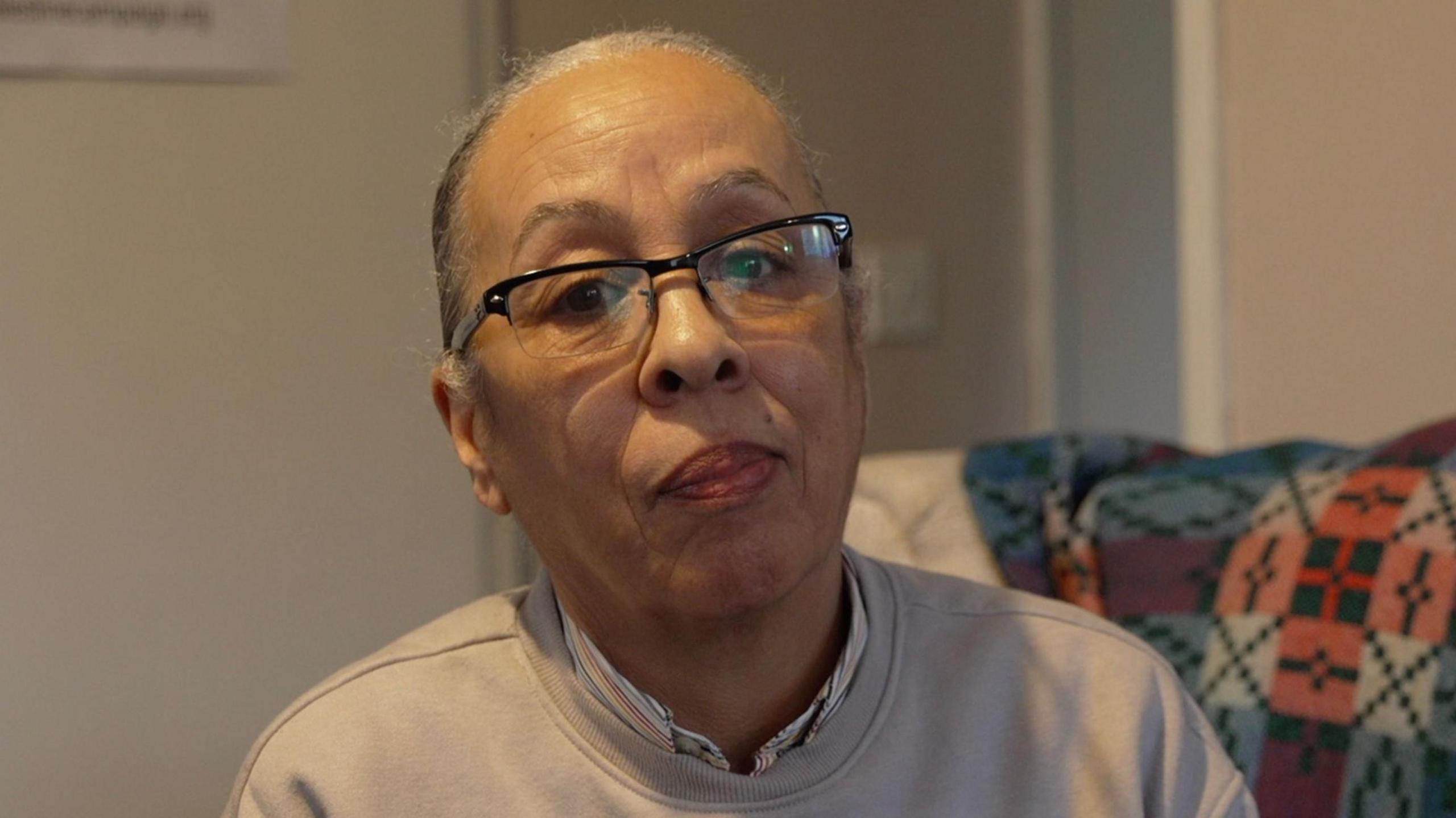Care worker's 60-hour week with no holiday in year

Winnie Watson is a paid carer for Sam Brackenbury who has cerebral palsy, and says she hasn't been able to take a holiday in a year
- Published
A care worker says she is working 60-hour weeks and has not been able to take a holiday for a year.
Winnie Watson, from Harborne, Birmingham, has been a full-time carer for Sam Brackenbury, who has cerebral palsy, for 19 years.
His condition deteriorated after contracting Covid at the end of 2023, meaning Ms Watson now has to help him with almost every aspect of day-to-day life.
Mr Brackenbury has asked Birmingham City Council for another carer to support her. The authority has pledged that despite its precarious financial position, it will protect the "most vulnerable".

Sam Brackenbury, who has cerebral palsy, says he doesn't want to be a burden on society
Ms Watson said that caring for Mr Brackenbury has left her feeling “worn out” and “done”.
“I can only take so much, it’s just not fair. It does feel desperate," she said.
Asked how she felt about the prospect of having to leave Mr Brackenbury without care, she explained "it makes you feel rubbish, I can’t do it".
"Sometimes I feel like coming in here and banging my head against a brick wall," she said.
'Not a lifestyle choice'
“It would be easy for me to walk out the door, but then where would that leave him? It would leave him more vulnerable than he already is.”
They have now asked the city council to cover the cost of another carer for 14 hours.
But they were recently told they would only receive funding for six hours – something Ms Watson said wouldn’t be enough for her to take a full day off.
“I don’t want to be a burden on society," Mr Brackenbury said. "Cerebral palsy is not a lifestyle choice.”

Birmingham City Council has drawn up plans to cut around £50m fm the adult social care budget over the next two years.
The council is currently looking to make £300m of cuts over the next two years, with the adult social care budget in line to face some £24m in cuts this year and about £50m in total next year.
Mr Brackenbury said he was worried about the consequences of the cuts.
“People are going to die and there’s blood on their hands," he said.
"Councils and social services always seem to learn after the fact, when somebody’s died, when somebody hasn’t received the care.”
He said that the council's "financial ineptitude is not my problem".
'Minimise percentage savings'
"My problem is I want to live in the community and other disabled people, who are not as vocal as me, have the right to live in the community,” he explained.
A Birmingham City Council statement said every effort was being made to minimise the cuts required.
“Despite the significant financial challenges we face, we are determined to ensure our most vulnerable residents are protected," they said.
"Which is why every effort has been made to minimise the percentage savings in the high demand areas of adult social care and children and young families, with a higher percentage of cuts to back office functions.”
Follow BBC West Midlands on Facebook, external, X, external and Instagram, external. Send your story ideas to: newsonline.westmidlands@bbc.co.uk, external
Related topics
- Published20 February 2024

- Published1 April 2024

- Published14 December 2023
